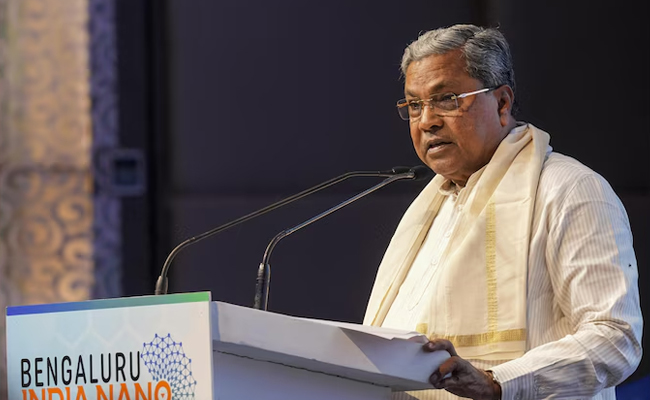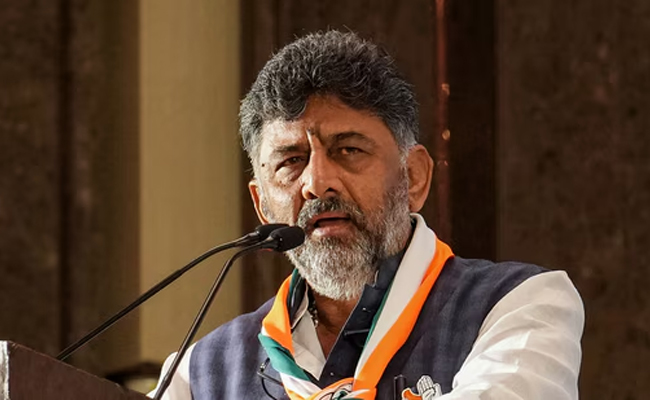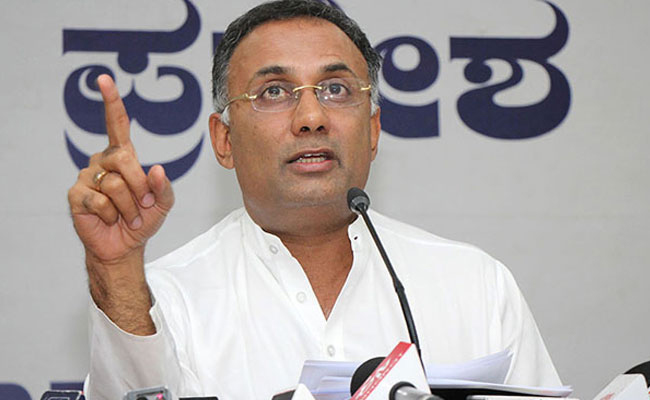Bengaluru (PTI): Karnataka Chief Minister Siddaramaiah on Thursday alleged that BJP was raking up the "Waqf issue" with an eye on the upcoming assembly by-polls in the state and elections in neighboring Maharashtra.
Following allegations by a section of farmers in certain parts of the state that their lands were marked as Waqf properties, he reiterated that none of them will be evicted, and notices issued to them will be withdrawn.
"BJP is doing politics. Notices were issued during their (BJP) tenure too, what do they have to say about it? During BJP's tenure over 200 notices were given. One should not practice such dual politics," Siddaramaiah said.
Speaking to reporters here, the CM said, "I have already said that the notices will be withdrawn, where is the issue? In case the notices are issued they will be withdrawn and no one will be evicted, where is the issue?"
"Whichever district it is...They (BJP) had also given notices in several districts. Why did they give? Why are they doing such politics? In case notices were served by our government, they will be withdrawn and no farmers will not be evicted....the protest they have planned on November 4 is for politics keeping in mind by-polls in three segments and Maharashtra elections," he added.
A section of farmers from Vijayapura district have alleged that their lands were marked as Waqf properties, and similar allegations have surfaced from a few other places.
The BJP is planning a statewide agitation on November 4, demanding the resignation of Minority Welfare and Waqf Minister B Z Zameer Ahamed Khan, and against the Congress government over the issue.
Let the Truth be known. If you read VB and like VB, please be a VB Supporter and Help us deliver the Truth to one and all.
Nalbari: Tension prevailed in the Panigaon area of Nalbari district on December 24 after members of the Vishwa Hindu Parishad (VHP) and Bajrang Dal allegedly entered the premises of St Mary’s School and vandalised materials prepared for Christmas celebrations.
According to local sources, activists of the VHP and Bajrang Dal entered the school campus ahead of Christmas and raised slogans inside the premises. It is alleged that Christmas-related decorations and materials kept within the school compound were damaged and set on fire.
Eyewitnesses said that members of the Bajrang Dal were the first to enter the campus, during which they allegedly raised slogans such as “Jai Shri Ram,” “Jai Hindu Rashtra,” and “Bharat Mata Ki Jai,” and burnt items prepared for Christmas celebrations. The incident created panic among local residents and led to concerns over law and order in the area. No injuries have been reported so far.
The incident comes amid reports of similar acts in Nalbari town in recent days, where Christmas decorations displayed at several commercial establishments were allegedly set on fire.
Reacting to the incident, fact-checker Mohammed Zubair said on social media that VHP and Bajrang Dal activists entered St Mary’s School on Christmas Eve, raised slogans and destroyed Christmas decorations. His post drew attention to the incident and sparked wider discussion online.
Police have not yet issued an official statement on the incident. Further details are awaited.
On Christmas Eve, Vishva Hindu Parishad and Bajrang Dal goons entered St. Mary’s School in Panigaon, Nalbari, chanting slogans like “Jai Shri Ram” and “Jai Hindu Rashtra.” They destroyed and set fire to all Christmas decorations prepared at the school. pic.twitter.com/LQHV7FWUvz
— Mohammed Zubair (@zoo_bear) December 24, 2025





